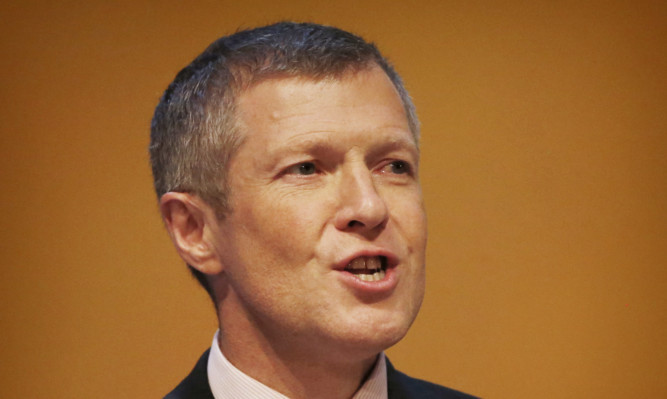Councillors should be allowed to veto senior police officers’ plans for their local communities, according to the Liberal Democrats.
Leader Willie Rennie stressed he is not trying to tie the hands of the senior officers, but said “local needs have been ignored in favour of national targets and diktat”.
Mr Rennie has met volunteers with the UK Civil Air Patrol, an organisation which provided air search support for the police until 2013.
Speaking after completing a training flight with the Civil Air Patrol in Perthshire, Mr Rennie said the move to a single national police force had led to national targets taking priority over local concerns.
The Lib Dems would boost the role of councillors in shaping and signing off local policing plans.
Mr Rennie said: “The UK Civil Air Patrol provided Tayside Police with invaluable support from the air.
“For no obvious reason, the new national force dispensed with their services despite the opposition of many from within Perthshire and further afield.
“If there were compelling operational reasons for this change then they were not explained to councillors or anyone else.
“We have seen this approach again and again under Police Scotland. Local needs have been ignored in favour of national targets and diktat as a direct consequence of the SNP’s reforms.
“Morale in the force has plummeted as a result of repeated controversies, with reports of widespread use of officers doing jobs they weren’t trained for due to civilian cuts.
“We will increase resources to protect front-line police jobs and scrap the top down target culture.
“We want to see police officers and staff given the freedom to do their jobs but where we have controversial policies like the deployment of armed officers on routine duties, local people must have their say.
“In the Highlands, Police Scotland pressed on with the use of armed officers despite vocal objections from local people. That needs to change.
“We will put democracy back into policing by giving councils a veto on local policing plans.
“This change is not about tying the hands of senior officers. It is about fixing the mess created by the SNP, protecting the principle of policing by consent and ensuring that policing reflects local needs.”
